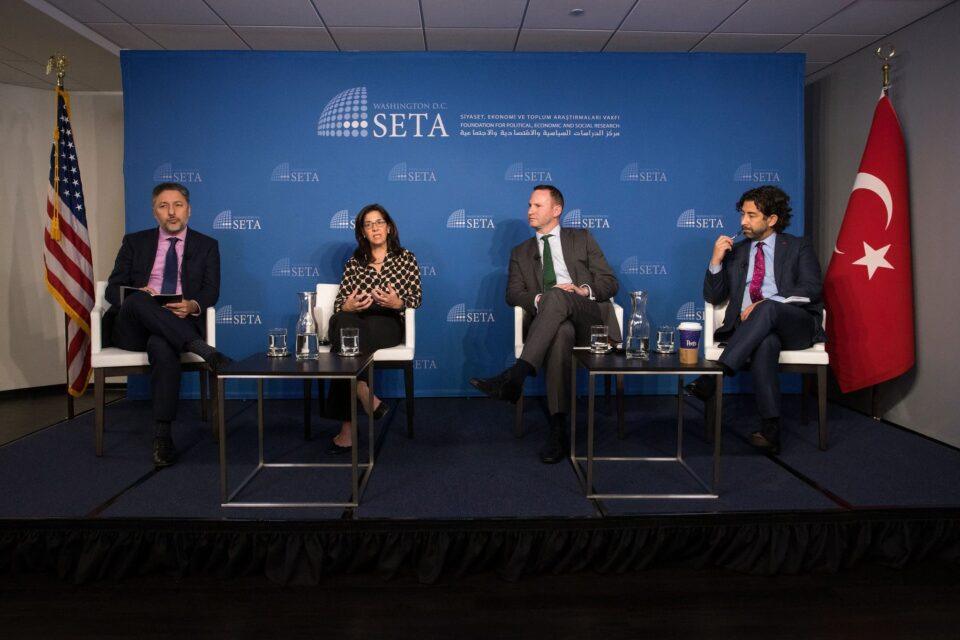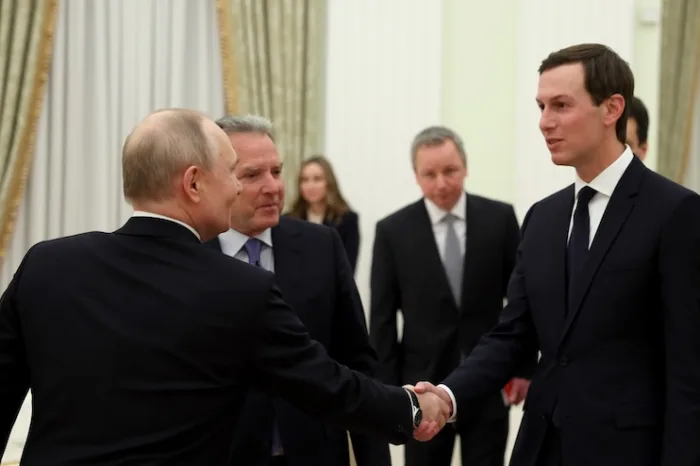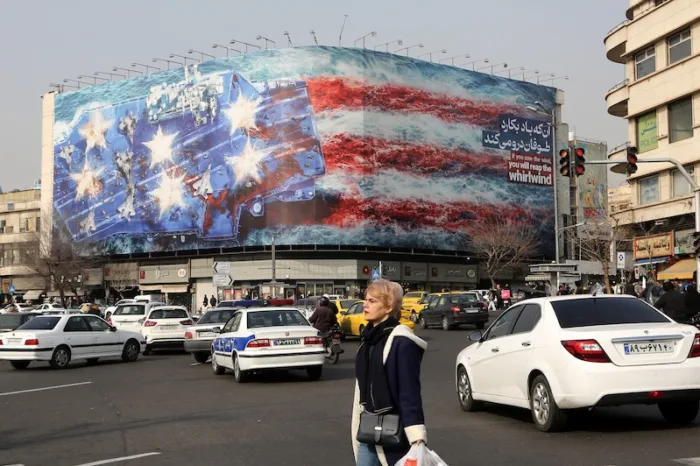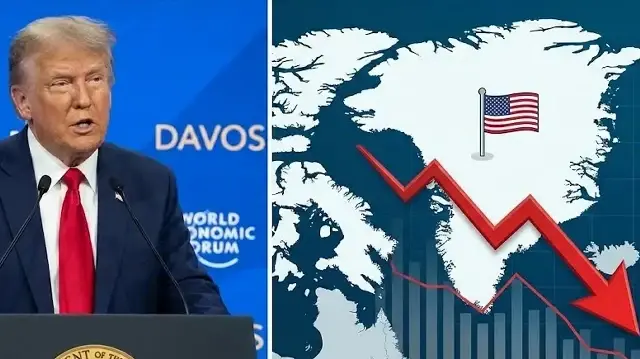Event Summary: The Future of US Policy on Syria

On Wednesday, November 6, 2019, the SETA Foundation at Washington, DC hosted a panel to discuss ‘The Future of US Policy on Syria. Moderated by Kadir Ustun, Executive Director at the SETA DC, the panel included Mona Yacoubian, Senior Advisor for Syria, the Middle East, and North Africa at the United States Institute of Peace, Luke Coffey, Director of the Douglas and Sarah Allison Center for Foreign Policy at the Heritage Foundation, and Kilic B. Kanat, Research Director at SETA DC.
Mona Yacoubian began the discussion by highlighting in great detail the difficulty of discussing stabilization when active conflict is still occurring in the safe zone. Prior to October 6, there was a potential pathway out of the forever wars through the strategy of working by, with, and through US partners on the ground. She believes this model was working well and brought about a creative approach to the US’s counter ISIS campaign. However, she likened the recent withdrawal to the 2011 withdrawal in Iraq, both paving the way for the resurgence of extremist groups. Due to lack of American strategy, the Russians are exploiting US shortcomings and the US is losing its leverage and influence in the conflict. She added that pivoting the focus to oil facilities in Syria is completely wrong.
Luke Coffey magnified the fact that the US’s main priority is protecting the homeland and that of its allies. As for the Syrian civil war, there is nothing the US can do to construct an outcome with which it will be satisfied. He called on the US to align its geopolitical posture with its national security strategy in order to prepare for emerging great power competition with Russia, China, and Iran. The idea that the US withdrawal from Syria has created a power vacuum that the Russians are exploiting is misguided, in his opinion, claiming that Syria has always been within Russia’s sphere of influence. He criticized Washington’s treatment of the Kurds as one monolithic group, illustrating that a more nuanced understanding of the groups the US is arming is key to achieving its goals. In order to create the most favorable outcome in Syria, the US must prevent the conflict from spilling over into other countries.
Kilic B. Kanat drew attention to Washington and the bureaucracy’s desire to stay in Syria absent any investment in policy or strategy. There is an uncertainty and unpredictability about the goals of the US in Syria, and now this goal appears to have shifted to protecting oil, which he does not see as conducive to reconstructing the country. To compensate for the lack of a top-down strategy, those on the ground are creating the model without understanding the geopolitical ramifications. In response to the YPG protecting ISIS detention centers, he noted that this strategy is unsustainable in preventing the resurgence of ISIS. He encouraged the US to invest more in diplomacy and put as much energy into that aspect as they do in what happens on the ground.





































